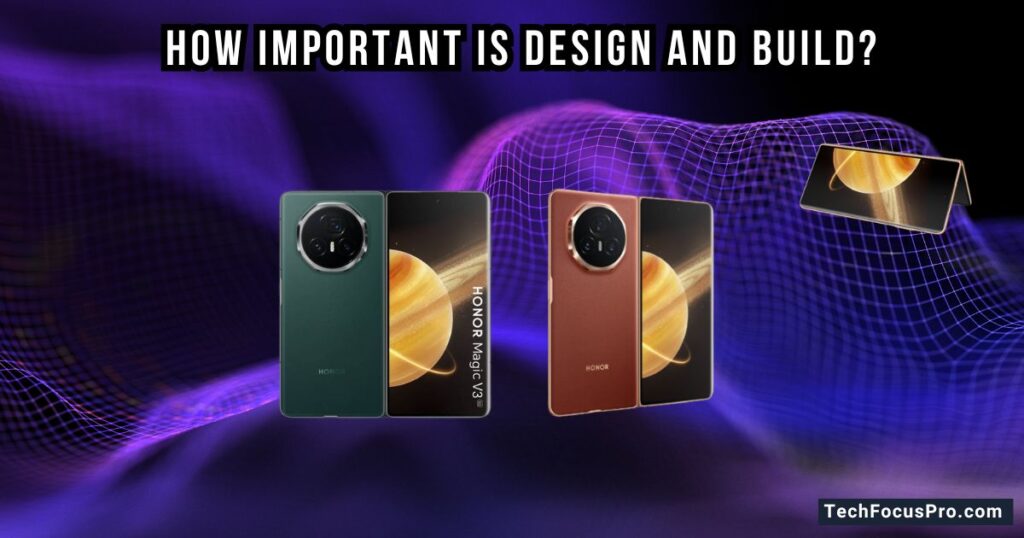How to Choose the Right Smartphone for You?

Choosing the right smartphone can be overwhelming given the multitude of options available. Your decision should be guided by several critical factors such as your budget, desired features, preferred operating system, and the design and build quality of the device.
In this guide, we will explore these aspects in detail, helping you make an informed decision that meets your specific needs. Whether you prioritize camera quality, battery life, or user experience, understanding what matters most to you will simplify the selection process.
What is Your Budget?
Identifying Your Price Range
Understanding your budget is the first step in choosing the right smartphone. Smartphones are available in various price ranges, from affordable models to high-end flagships. Identifying your price range will help narrow down your options significantly. If you have a flexible budget, you might consider investing in a premium smartphone for a better overall experience.
However, even within lower price brackets, you can find devices that offer excellent value for money. It’s essential to balance your budget with the features that matter most to you, ensuring you get the best possible device without overspending.
Budget vs. Flagship Smartphones
Budget smartphones have come a long way in recent years, offering features that were once exclusive to flagship models. While budget smartphones provide essential functionalities and decent performance, flagship smartphones offer superior build quality, cutting-edge technology and advanced features.
For instance, flagship models often boast better cameras, faster processors, and more vibrant displays. When comparing budget and flagship smartphones, consider whether the additional features and improved performance of a flagship model justify the higher price. Ultimately, the decision depends on your specific needs and how much you’re willing to spend.
Considering Long-term Costs
When purchasing a smartphone, it’s crucial to consider the long-term costs associated with your choice. Beyond the initial purchase price, think about expenses such as accessories, warranties, and potential repairs. Higher-end smartphones might have higher repair costs, but they often come with longer software support and better resale value.
Additionally, consider the costs of data plans and other services that may be required. By evaluating the long-term financial implications, you can make a more informed decision that aligns with your budget and ensures you get the best value over time.
What Features Do You Need For Smart Phone?

Camera Quality
Camera quality is a crucial factor for many smartphone buyers. Modern smartphones offer a range of camera features, from multiple lenses to advanced software enhancements. When evaluating camera quality, consider factors such as megapixel count, aperture size, and image processing capabilities.
A higher megapixel count can result in more detailed photos, while a larger aperture allows for better low-light performance. Additionally, features like optical image stabilization and HDR can significantly improve photo quality.
If photography is a priority, investing in a smartphone with a top-notch camera will enhance your ability to capture stunning images and videos.
Battery Life
Battery life is another essential feature to consider when choosing a smartphone. The battery capacity, measured in milliampere-hours (mAh), indicates how long a device can last on a single charge.
However, other factors such as processor efficiency, screen size, and software optimization also affect battery performance. Smartphones with larger batteries or more efficient processors generally offer longer battery life, which is crucial for users who rely heavily on their devices throughout the day.
Additionally, features like fast charging and wireless charging can enhance convenience and ensure your phone is always ready to use.
Storage and RAM
Storage and RAM are vital components that impact a smartphone’s performance and usability. Storage determines how much data, apps, and media you can keep on your device, while RAM affects how smoothly your smartphone can run multiple applications simultaneously.
When choosing a smartphone, consider your storage needs based on your usage patterns. If you frequently download apps, store photos, or use your phone for media consumption, opting for a device with ample storage is advisable. Similarly, more RAM ensures better multitasking capabilities, allowing for a smoother and more responsive user experience.
Which Operating System Suits You Best?

Ecosystem and Compatibility
The ecosystem and compatibility of your smartphone’s operating system can significantly impact your daily interactions and productivity. HONOR offers a cohesive ecosystem with seamless integration between devices, services, and accessories.
This compatibility extends to features such as cloud storage, messaging, and device synchronization. If you already own other HONOR products, choosing a HONOR smartphone can enhance your overall experience by providing a unified and interconnected environment. Assessing the ecosystem and compatibility will ensure that your new smartphone fits seamlessly into your existing setup and enhances your digital lifestyle.
User Experience and Interface
The user experience and interface of a smartphone’s operating system play a crucial role in your day-to-day usage. HONOR smartphones offer intuitive interfaces with user-friendly designs and consistent performance. Consider the ease of navigation, customization options, and the availability of features that enhance usability.
A well-designed interface can make your smartphone more enjoyable and efficient to use. Whether you prioritize simplicity, customization, or specific functionalities, choosing a smartphone with an operating system that aligns with your preferences will ensure a satisfying and seamless experience.
How Important is Design and Build?

Screen Size and Resolution
The design and build quality of a smartphone significantly impact its usability and aesthetics. Screen size and resolution are key factors to consider, as they affect your viewing experience and overall comfort. Larger screens are ideal for media consumption and multitasking, while smaller screens offer better portability. High-resolution display provide sharper and more vibrant visuals, enhancing your interaction with apps, games, and media. When choosing a smartphone, consider how the screen size and resolution align with your usage habits and preferences, ensuring you get the best possible visual experience.
Material and Durability
The materials used in a smartphone’s construction affect its durability and feel. HONOR smartphones often feature premium materials like glass and metal, providing a sleek and sturdy design. Durability is crucial for ensuring your smartphone can withstand daily wear and tear, as well as accidental drops. Look for devices with reinforced frames, scratch-resistant coatings, and water resistance to enhance longevity. Additionally, consider the availability of protective accessories such as cases and screen protectors. A durable smartphone will offer peace of mind and maintain its appearance and functionality over time.
Ergonomics and Usability
Ergonomics and usability are essential aspects of a smartphone’s design that influence how comfortable and convenient it is to use. Factors such as weight, thickness, and button placement contribute to the overall ergonomics. A well-designed smartphone should fit comfortably in your hand and be easy to operate with one hand if needed. Usability features like fingerprint sensors, face recognition, and intuitive button layouts enhance the overall user experience. When evaluating a smartphone’s design, consider how these elements align with your daily usage patterns and preferences, ensuring a comfortable and efficient experience.
Conclusion
Choosing the right smartphone involves careful consideration of your budget, desired features, preferred operating system, and the design and build quality. By evaluating these factors, you can find a device that meets your specific needs and enhances your daily life. Whether you prioritize camera quality, battery life, or user experience, making an informed decision will ensure you get the best value for your investment. Explore options like the HONOR Magic V3 price to find a smartphone that aligns with your requirements and budget.
FAQs: How to Choose the Right Smartphone
What are the key factors to consider when buying a smartphone?
Consider the operating system, display quality, performance (processor, RAM), camera, battery life, and price to find the right balance of features for your needs.
Which is better for me: Android or iOS?
Android: Offers more customization and a wider range of devices at different price points.
iOS: Offers a seamless user experience, tight integration with Apple’s ecosystem, and longer software support.
How much storage do I need?
64GB or 128GB: Suitable for casual users who mainly use apps and store a moderate amount of media.
256GB or higher: Ideal for those who store large amounts of photos, videos, or apps. Some Android phones allow expandable storage.
What should I look for in a phone’s camera?
Check megapixels, multiple lenses (wide, ultra-wide, telephoto), and features like night mode, 4K video recording, and image stabilization for better photography and videography.
How important is battery life?
Look for phones with at least 3000mAh if you want all-day usage. For heavy users, a larger battery (4000mAh or more) and fast charging capabilities are ideal.
Should I buy a phone with 5G?
Consider 5G if you want faster internet speeds and future-proofing. However, 4G LTE is still widely available, and 5G may not yet be essential depending on your location.
What to check when buying a phone?
When buying a phone, start by choosing the right operating system—Android offers a wide range of devices and customization options, while iOS provides a streamlined experience and long-term software support. Next, look at the display—consider the size and resolution (Full HD or more) for a sharp, vibrant screen, with AMOLED displays providing richer colors and deeper contrast than LCD.
Performance is important, so check the processor (such as Snapdragon or Apple’s A-series) and RAM (at least 4GB for basic use or 6GB+ for heavy multitasking). Storage should be at least 64GB for casual users, but 128GB or higher is recommended for those who store many apps, photos, and videos. Some phones offer expandable storage via microSD cards.
For photography enthusiasts, a good camera is essential—look for multiple lenses (like wide, ultra-wide, and telephoto) and features such as night mode and image stabilization. Finally, consider battery life—a 3000mAh or higher battery will generally last all day, and fast charging or wireless charging adds convenience. 5G support is also worth considering if you want faster internet speeds in areas with coverage.






